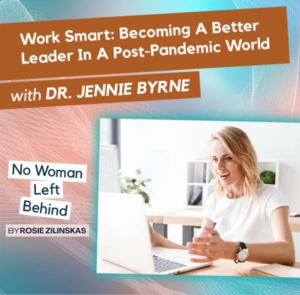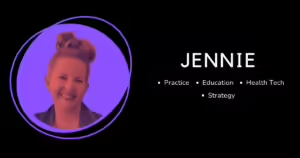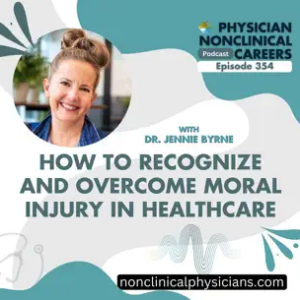Leaning Out
One of the most distressing conversations I had recently was with a young woman starting her final year of medical school.
She had reached out to me for advice on selecting a residency program and said: “I was thinking about psychiatry because that way I can work part time. I mean, I might want to have children someday.”
Here was a woman in her early 20s who had gone through four difficult years of pre-med classes at a top university, and had just spent the last three years completing a grueling schedule of medical school classes and rotations. She was not in a romantic relationship. She was not sure if she wanted to have children in the future.
But she was already leaning out.
Leaning out is a term popularized by the book “Lean In” by Sheryl Sanders (Sandburg, 2015). This book was highly controversial because it advised women to lean into their careers – work harder, longer. Be ambitious. Don’t let family stand in your way.
I don’t agree with the first principle of this book that the key is to work harder, longer. However, I do believe that women in particular lean out of their career before they have even started. They select jobs and career paths with the explicit idea that they will take time away, they will work part-time, they will be lesser in some way to others at work.
I believe that leaning out means pulling back, not giving 100% at work, taking shorter hours, disengaging from work.
I have already written about why moral injury is such a critical problem for physicians and other clinicians right now. If we apply the concept of leaning out, we can see it happening all around us.
Clinicians are pulling away from traditional full-time jobs. They are shifting to temp work where they can take breaks. They want to work fewer hours. They are disengaging.
While I fully support the individual’s need to take care of themselves and their physical and mental health, I think it is important to point out that some of the leaning out phenomena is not due to clinician preference or individual needs. Some of the leaning out is due to moral injury.
Since clinicians don’t know how to manage or minimize moral injury, they react as you would to any other injury, they retreat. But – and this is important – leaning out will not fix moral injury in healthcare.
Leaning out is a temporary fix because clinicians have less contact with the issue, but the root cause is not addressed. If the physicians continue to work in the moral injury environment, albeit for fewer hours, they will continue to be wounded. They will continue to disengage.
This behavior impacts patient care. If you are 50% engaged with your work, you will not be 100% engaged with your patient. It is not that easy to switch gears cognitively. More likely you will be 25% engaged with your administrative work, and 60% engaged with your patients.
Why does this matter?
One of the key ways that healing occurs in healthcare is through relationships. A trusting relationship between a clinician and their patient is a big part of the medicine that heals. Empathy, compassion, and kindness matter.
Physicians who get sued for malpractice are most often getting sued not because of their medical judgement, but because of their poor communication and lack of empathy. According to a random sample of malpractice claims reviewed by the Joint Commission, 49% of medical malpractice claims involve communication failures, and 53% of those communication failures happened between the clinician and the patient (Humphrey et al. (2022) Journal of Patient Safety, 18(2).)
Have you been a patient in the room with a physician or clinician who seems checked out? Who doesn’t connect with you? Who doesn’t demonstrate empathy for what you are going through?
It feels terrible as a patient to be in these rooms.
If we do not address moral injury, physicians and other clinicians will continue to lean out. They will disengage from work when they are there. They will gradually lose connection and empathy with patients. They will lose some of the most important tools they have to heal other human beings.
When clinicians lean out, patients feel it. In turn, the patients reflect this behavior and emotion. Patients start to lean out, and disengage. As a patient, when you disengage with your healthcare, you risk many bad outcomes. It is not surprising that a healthcare system with poor clinician engagement also has poor patient engagement and poor clinical outcomes.
I wonder if one of the reasons the United States has the worst healthcare outcomes for a country with our wealth and sophistication is related to disengagement and trust. Perhaps in other countries, the moral injury is less prevalent. Perhaps the patients and clinicians still trust one another. Perhaps they are more engaged and leaning in rather than leaning out.
Leaning out in healthcare is bad for everyone.







